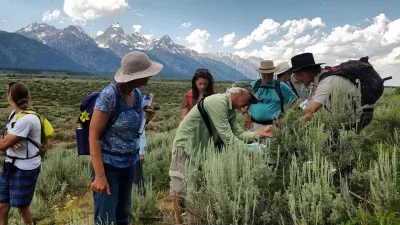As cash-strapped and technologically savvy governments increasingly look to harness the power of the crowd, William D. Eggers and Rob Hamill offer suggestions for "Five Ways Crowdsourcing Can Transform the Public Sphere."
As Eggers and Hamill note, "Turning to large groups of people to solve problems, make decisions, and generate ideas in a decentralized way is not a new concept." What is new in this day and age is the ease with which technology had made such participation more accessible than ever. "Before jumping on the crowdsourcing bandwagon, however," Eggers and Hamill note, "government organizations must first understand the five basic models and when to use the activities associated with each."
The models described by the authors include:
- Crowd competition
- Crowd collaboration
- Crowd voting
- Crowd labor
- Crowd funding
The authors introduce handy examples of each model, hoping to guide public-sector officials to the appropriate route for establishing a personal connection with their constituents and maximizing the potential of alternative resources.
FULL STORY: Five Ways Crowdsourcing Can Transform the Public Sphere

Planetizen Federal Action Tracker
A weekly monitor of how Trump’s orders and actions are impacting planners and planning in America.

Maui's Vacation Rental Debate Turns Ugly
Verbal attacks, misinformation campaigns and fistfights plague a high-stakes debate to convert thousands of vacation rentals into long-term housing.

Cuomo Is the Candidate of Both NIMBYs and Developers. What Gives?
In the New York City mayoral race, odd bedfellows align to preserve the housing status quo.

San Antonio and Austin are Fusing Into one Massive Megaregion
The region spanning the two central Texas cities is growing fast, posing challenges for local infrastructure and water supplies.

Charlottesville Temporarily Has No Zoning Code
A judge ordered the Virginia city to throw out its newly revised zoning code, leaving permitting for new development in legal limbo.

In California Battle of Housing vs. Environment, Housing Just Won
A new state law significantly limits the power of CEQA, an environmental review law that served as a powerful tool for blocking new development.
Urban Design for Planners 1: Software Tools
This six-course series explores essential urban design concepts using open source software and equips planners with the tools they need to participate fully in the urban design process.
Planning for Universal Design
Learn the tools for implementing Universal Design in planning regulations.
Heyer Gruel & Associates PA
JM Goldson LLC
Custer County Colorado
City of Camden Redevelopment Agency
City of Astoria
Transportation Research & Education Center (TREC) at Portland State University
Jefferson Parish Government
Camden Redevelopment Agency
City of Claremont





























